- Home
- Parnell Hall
You Have the Right to Remain Puzzled Page 3
You Have the Right to Remain Puzzled Read online
Page 3
“It’s not a question of what you want, it’s a question of what you can get away with. When your lover’s a creep—and, believe me, most of them are creeps—”
The woman shot to her feet. “Damn it!” she cried. “I am not having an affair!”
The Reverend Kimble, heading into the bakeshop, stopped in mid-stride and his mouth fell open. He cleared his throat in embarrassment and said, “Hello, Cora. Hello, Mimi.”
Mimi blushed furiously, and readjusted the baby’s hat.
“Hey, Rev,” Cora said. “You gonna be in later? I need to see you about a wedding.”
The reverend was now thoroughly flustered. “You’re getting married?”
“Not me. Sherry. Never mind, Rev. I’ll drop by the church. Go get your caffeine.”
The reverend went into the shop.
Cora wheeled on Mimi. “What do you mean you’re not having an affair?”
“I’m not. What a terrible thing to say! How am I ever going to face the reverend?”
“Oh, he’ll get over it.” Cora wasn’t sure she would. She wondered what the penalty was for killing a young mother. “So what the hell are you upset about?”
“The car.”
“What about the car?”
“I backed into a light pole. In the mall. One of the ones with cement around the bottom. I missed the tail-light, but I dented the fender. Squashed it, really. Had to be banged out. Repainted. You know how expensive that is? I’m still paying it off. Anyway, the dent was on the driver’s side. I angled the car in our driveway, so Chuck wouldn’t see it when I drove him to the station. Then I went straight to a garage. And you know how much they charged for just one little dent? If I told him right away it wouldn’t have been so bad, but the longer I wait the worse it gets. And now he’s gonna find out.”
“Why?” Cora demanded.
“The car’s due for inspection. Chuck always takes it in. The body shop did good work, but it’s not like it doesn’t show. The inspector will ask Chuck about the accident.”
“No, he won’t,” Cora said irritably. “All they care about is that you pass the emissions test, and pay an exorbitant price for a few irrelevant parts. They couldn’t care less about your damn dent.”
“No. I have to tell him.”
“Okay, so tell him. You don’t need me.”
“Yes, I do. It’s important. I want to make it special. Let Chuck know I care. You said you’d help me. And it would be so easy for you.”
Cora scowled. “What would be so easy for me?”
Mimi smiled. “To make a little crossword puzzle. Just for Chuck.”
DAN FINLEY WAS holding down the police station when Cora Felton came in. Apparently, it wasn’t that tough a job. The young officer was playing solitaire.
“Red seven on black eight,” Cora kibitzed.
“Hi, Miss Felton. What’s up?”
“I was gonna ask you the same thing. Isn’t anybody killing anybody anymore?”
Dan grinned. “Not at the moment. Things are slow.”
“Where’s the chief?”
“In his office.”
“Working?”
“Most likely taking a nap. But you didn’t hear it from me.”
Cora stuck her head in Dale Harper’s private office, found the chief on the phone. She mouthed, “Sorry,” and started to close the door, but he waved her in.
Cora flopped into a chair, hoping the chief was involved in some high-level intrigue. He was writing on a legal pad, which looked promising.
“Uh-huh. Uh-huh,” the chief said. “And a pint of sour cream.”
Cora figured that probably wasn’t life or death.
Harper hung up the phone. “So, whaddya want?”
“What makes you think I want something?”
“You’re not smoking.”
“Oh?”
“When I want something, you’re lighting up, looking around for an ashtray, telling me if you can’t smoke in here you’ll take it outside. When you want something, you’re polite.”
“Gee, Chief. Are you accusing me of being manipulative?”
“Heaven forbid.” Chief Harper leaned back in his chair, sipped his coffee. A crumpled muffin paper was on the desk. Most likely from a blueberry ginger, his latest muffin of choice. “So what do you need help with? Sherry’s wedding?”
“How come everybody knows about that? It hasn’t been announced yet.”
“This is a small town. If you have to learn something by reading the paper, it means you haven’t been paying attention.”
“That will be bad news for the groom. He kind of depends on people reading the paper.”
“I wouldn’t worry about it. I doubt if the Gazette’s circulation’s changed much in twenty years. So what’s up? This just a social call?”
“I’m bored. Nobody’s tried to kill anybody recently. Not that I wish anyone ill. Still, if someone had to die, it wouldn’t hurt if it was in your jurisdiction.”
“So you could solve it for me?”
“Not at all, Chief. But it would give me something to think about. Aside from this damn wedding.”
Chief Harper’s eyes narrowed. “Damn wedding? You’re not happy about the match?”
“Of course I’m happy about the match. They’re perfect for each other. If they’d get over their petty jealousies. Which is no sure thing. Aaron’s hung up on her ex-husband. Sherry keeps looking over her shoulder at Becky Baldwin.”
“Can you blame them?”
“Of course I blame them. They’re young. They’re in love. They should be oblivious to such things while caught in the throes of animal passion.” Cora found Chief Harper blushing furiously. “Or so I’m told.”
“Where are they going to live?”
“They haven’t worked that out yet.”
“You’re kidding.”
“Actually, /haven’t worked it out yet. Aaron’s moving in with Sherry. He practically has anyway. Which is not a problem, until it becomes official. As soon as it does, I’m the spinster aunt in the guest room.”
“I don’t think anyone would call you a spinster aunt.”
“I’m glad to hear it. The point is, I can’t see me staying there after they’re married. No one’s asked me to move out. I just don’t know where I’d go. My apartment’s sublet. I’d have to get it back. I’m not sure how hard it is to boot people in that situation. They’ve been there a couple of years. They think they got license. I don’t know how to evict them. I might have to marry a real estate lawyer.”
“I’m glad you can joke about it.”
“Who’s joking? I’ve married men for less. And a lawyer ought to have some money.” Cora dug in her floppy drawstring purse, pulled out a pack of cigarettes.
“You can’t smoke in here.”
“Yeah, but you’re not going to give me what I want. So what’s the difference?”
“You’re not making much sense.”
“No, I’m not. If I hadn’t given up drinking, I’d get drunk. If I hadn’t given up men . . . Well, never mind. I haven’t given up men. There’s just none on the horizon.” Cora sighed. “You know how desperate I am? I thought one of the women at the bakeshop was having an affair, and I offered to help her.”
“You offered to help her have an affair?”
“No. I offered to deal with the blackmailer.”
“You really shouldn’t be telling me this.”
“It’s all right. There’s no blackmailer. There’s no affair. She just ran into a tree.”
“What?”
“Not a tree. A pole.” Cora waggled her hand. “It doesn’t matter. Anyway, I said I’d help her before I knew what it was all about. Now I’m stuck with breaking it to her husband that she dented the car.”
“That doesn’t sound hard.”
“It’s a snooze, that’s what it is. Come on, Chief. Don’t you have something you need to know? I’d be happy to dig it out. I’m going stir-crazy.”
Chief Harper picked
up the phone and pressed the intercom.
Dan Finley answered in the other room. “Yeah, Chief?”
“Dan, you got the file on the Wilbur case?”
“Excuse me?”
“Yeah. The Wilbur file. Could you bring that in here?”
“Are you kidding me?”
“Thanks, Dan.” Chief Harper hung up the phone.
“What’s the Wilbur case?” Cora demanded.
“You wanna look into something, this is it.”
Dan Finley came in the door. “You sure you want the Wilbur case?”
“Don’t oversell it, Dan. Your skepticism is noted.”
“What’s the case?” Cora asked.
“Unsolved robbery. Been kicking around for a year now.”
“It’s still open?”
“In a manner of speaking.”
“I don’t understand.”
“The thing that keeps this case open, instead of sinking into the depths of the great unsolved, every month or two Mr. Wilbur comes in and refiles the complaint.”
“Can he do that?”
“I have no idea. But short of arresting him or throwing him out of my office, I don’t know how to stop him.”
“Who is he?”
“Antiques dealer. Has a shop just out of town. With the broken wagon wheel sign.”
“Oh, him. So what does he claim was stolen?”
“His chairs.”
“What chairs?”
“He bought some chairs at auction. Had ’em delivered to his shop.”
“And?”
“Someone stole ’em.”
“When?”
“If I knew that, I might be able to solve this crime.”
“He doesn’t know when the robbery took place?”
“He has a barn out back. He stores stuff not immediately for sale.”
“The chairs weren’t immediately for sale?”
“Stick with me here. No, they weren’t. They were rattan, wicker-back chairs. Needed refinishing. Wilbur intended to get ’em done, never got to it. Next time he looked for ’em, they were gone.”
“And that period of time would be?”
“Anybody’s guess. The best we can tell, the auction was in April, Wilbur filed his first complaint in May.”
“A month later?”
“Thirteen months later.”
Cora cocked her head. “I can’t see why you haven’t solved this case, Chief.”
Dan Finley’s smile was enormous. “You giving it to her? He’s due to come in any day now. Can I say we gave it to her?”
“You can say we consulted an expert. Not that it will matter.” Chief Harper picked up his coffee cup, smiled with satisfaction. “I imagine by then he and Cora will have become good friends.”
THE BROKEN WAGON wheel sign was the only thing Cora remembered about Wilbur’s Antiques. This was not surprising. The white, two-story frame building looked exactly like ninety percent of the houses on the main street of Bakerhaven, which differed from each other only in their choice of black or green shutters. Wilbur had opted for green, the same color as the paint on his sign, which was short and to the point: ANTIQUES, it declared, in upper- and lower-case script. The A had a pointed top rather than round. The sign was rectangular, about a third wider than it was high.
The sign perched on the broken wagon wheel, which was missing at least two of its spokes. Any missing from the top half would have been hidden by the sign. The wagon wheel was held up by two-by-fours, which kept it at a slight angle from the perpendicular.
Cora pulled up next to the curb and stopped. Her red Toyota was the only car on the block. Apparently, the sign was not packing them in. Cora walked over and peered at the back of the sign, noted that the top spokes were all there. She continued along the front of the house until she could see the barn behind. It was white with green trim. The scene of the crime.
Cora reined herself in. Mustn’t make fun. This was important to the gentleman, needed to be treated seriously.
Cora went up the front steps. The windows on either side were not promising. One held a rather ratty Christmas wreath. The other a green vase. Neither instilled in Cora the desire to buy anything.
The front door was wood, not glass, allowing no view of the treasures within. It was also locked. Cora could understand why a man who’d been robbed might be security conscious; still, the whole setup didn’t seem conducive to sales. Cora couldn’t help wondering how long it had been since anyone had actually bought an antique there.
Cora knocked on the door. There was no answer. She knocked again. It seemed from somewhere deep within a faint voice said, “Coming,” but it might have been a TV, a creaking floorboard, or her imagination.
The door was flung open by a man Cora knew. Or at least recognized. She had seen him eating lunch in the Wicker Basket, dinner in the Country Kitchen, a muffin in Cushman’s Bake Shop. In fact, Cora couldn’t recall a time she hadn’t seen him eating. In light of which, he was most unfairly thin. His face was also most unfairly unwrinkled, considering his age, which had to be close to ninety. He had suspicious eyes, and a narrow line of a mouth that turned down at the corners. It was hard to imagine anyone buying anything from him.
His manner was not welcoming. “What do you want?” he croaked. It was the vocal equivalent of Dorian Gray—only his voice had aged.
“I want to help you,” Cora said.
That took him aback. Whatever he’d expected, that wasn’t it. He made no move to invite her in. Instead he seemed even more suspicious. “Help me what?”
“I understand you had a theft. Several chairs were taken. So far the police have no leads.”
“You want me to hire you to find my chairs?”
“No.”
“Then what’s it to you?”
“It’s a puzzle. I like puzzles.”
“Right. You’re the crossword puzzle person.”
“Yes.”
“I don’t see the connection.”
“There’s no connection.”
“Then why are you here?”
“I asked Chief Harper if he had any cases he needed help with. He told me about your robbery.”
“Oh, so he’s given up, has he? Palmed me off on you?”
It was all Cora could do to keep her frozen smile in place. “I prefer to think he called in an expert.”
“If he had, he’d be paying you. He paying you?”
“No, he isn’t.”
“There you are.”
“Yes, I am.” Cora smiled. “I’m sorry, Mr. Wilbur, but your case isn’t interesting enough for me to put up with abuse.”
Cora turned, went down the front steps.
Wilbur was caught off-guard. “Hey! Hey!”
He stumbled out on the stoop after her.
The door slammed.
Wilbur stopped dead, let out a string of invectives that would have befitted a drill sergeant welcoming the raw recruits.
Cora smiled up at him from the foot of the steps. “I take it you don’t have your keys?”
Wilbur compared her to creatures of limited intelligence but impressive sexual prowess.
Cora waited for him to sputter to a halt, then suggested, “How about a back window? You got a ladder?”
Wilbur seemed on the verge of suggesting unorthodox uses for the ladder. Instead he muttered, “In the barn.” He clomped down the steps and trudged in that direction.
Cora tagged along behind.
Wilbur reached the barn door, picked up a rock. He turned back to Cora. “You planning on robbing me?”
“It wasn’t on my agenda.”
Wilbur smashed a pane of glass with the rock, reached in, and unlocked the door.
“Is that how they stole your chairs?”
“Didn’t you read the report?”
Wilbur disappeared inside the barn, was back a moment later with a metal extension ladder.
“I read the report,” Cora said.
“Then you know.”
Cora went around to the front door. She wasn’t sure if Wilbur would let her in, but figured he had to move the ladder.
After a few minutes he came out.
“Got your keys?” Cora needled him.
He gave her a look, trudged to the back of the house, took down the ladder, and stowed it noisily in the barn. He emerged with a hammer, nails, and some plywood. He tacked one sheet over the broken window, and locked the barn door.
“You’re gonna patch the other window from inside,” Cora said. “I know that because I’m a trained investigator. And I saw you put away the ladder.”
“You ever solve a case?” Wilbur asked her.
“How long have you lived here?”
“Too damn long.”
He went up the front steps into the store. Cora followed, found herself in a room full of junk. Granted, what Cora knew of antiques couldn’t have furnished your average breakfast nook; still, the stuff in Wilbur’s shop looked more likely to be piled up on curbside next to the recyclables than adorning anyone’s home or office. The demand, for instance, for a two-wheeled tricycle with no seat couldn’t be high.
As for the furniture, while it was certainly old, it was also cracked and covered with dust. Tables, dressers, desks, sideboards, etc., in various periods, styles, and materials were thrown haphazardly together. The desk with the missing drawer was grouped with the director’s chair with no back. Cora managed to restrain herself from buying them. She wasn’t sure how long she could hold out against the allure of the ripped vinyl settee.
Wilbur shuffled behind what turned out to pass for a desk, though Cora wouldn’t have known it. He flipped open an appointment book, took out a pen, and wrote laboriously, moving his lips.
“Police . . . send . . . inspector. Refuses . . . to . . . inspect.”
“That’s hardly fair,” Cora protested. “I’m here. What do you want inspected?”

 Clicker Training
Clicker Training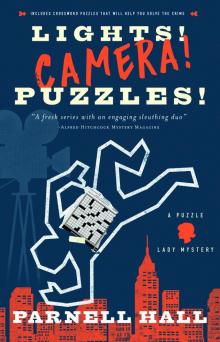 Lights! Camera! Puzzles!
Lights! Camera! Puzzles!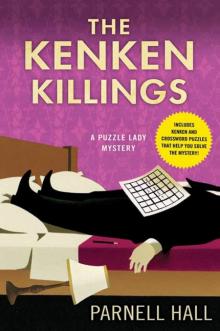 The KenKen Killings
The KenKen Killings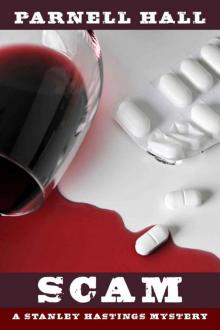 12-Scam
12-Scam The Puzzle Lady vs. the Sudoku Lady
The Puzzle Lady vs. the Sudoku Lady 2 Murder
2 Murder 7 Shot
7 Shot You Have the Right to Remain Puzzled
You Have the Right to Remain Puzzled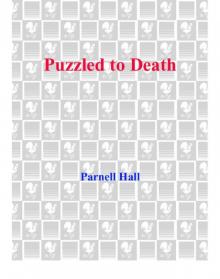 Puzzled to Death
Puzzled to Death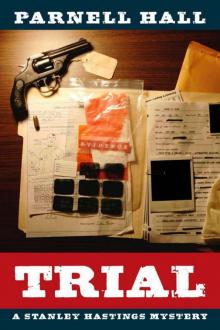 11-Trial
11-Trial The Witness Cat (Steve Winslow Mystery)
The Witness Cat (Steve Winslow Mystery) With This Puzzle, I Thee Kill
With This Puzzle, I Thee Kill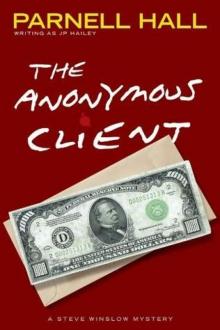 The Anonymous Client sw-2
The Anonymous Client sw-2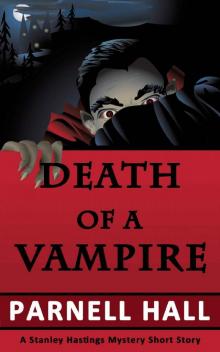 Death of a Vampire (Stanley Hastings Mystery, A Short Story)
Death of a Vampire (Stanley Hastings Mystery, A Short Story)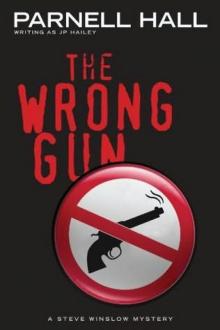 The Wrong Gun sw-5
The Wrong Gun sw-5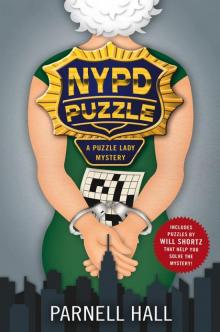 NYPD Puzzle
NYPD Puzzle 6 Juror
6 Juror 07-Shot
07-Shot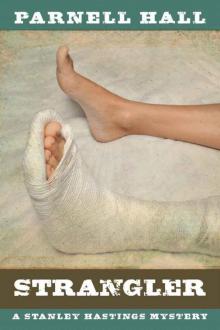 04-Strangler
04-Strangler 02-Murder
02-Murder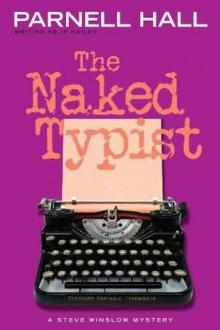 SW04 - The Naked Typist
SW04 - The Naked Typist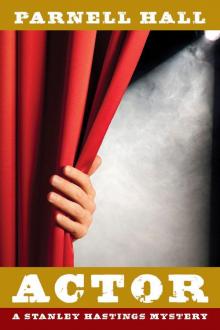 Actor
Actor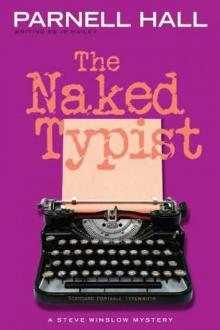 The Naked Typist sw-4
The Naked Typist sw-4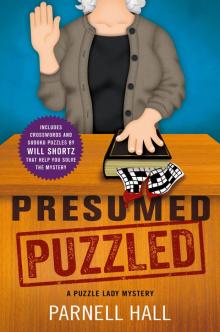 Presumed Puzzled
Presumed Puzzled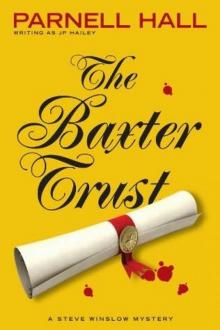 SW01 - The Baxter Trust
SW01 - The Baxter Trust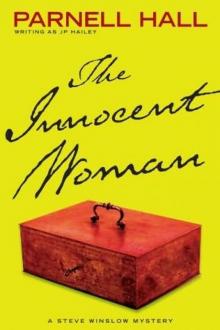 SW06 - The Innocent Woman
SW06 - The Innocent Woman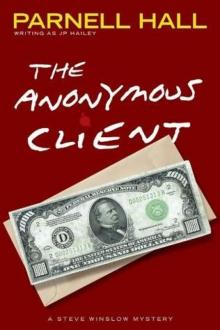 SW02 - The Anonymous Client
SW02 - The Anonymous Client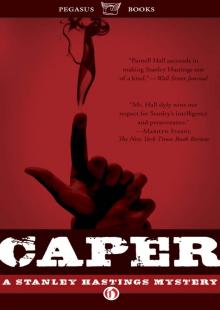 Caper
Caper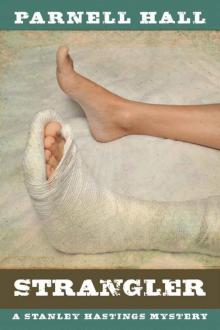 4 Strangler
4 Strangler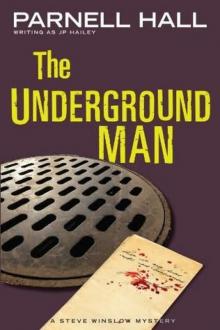 The Underground Man sw-3
The Underground Man sw-3 Manslaughter (Stanley Hastings Mystery, #15)
Manslaughter (Stanley Hastings Mystery, #15) A Puzzle to Be Named Later--A Puzzle Lady Mystery
A Puzzle to Be Named Later--A Puzzle Lady Mystery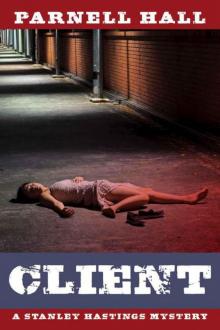 05-Client
05-Client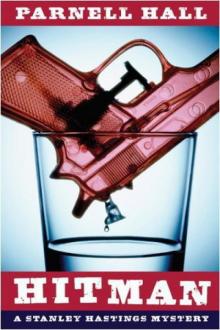 16 Hitman
16 Hitman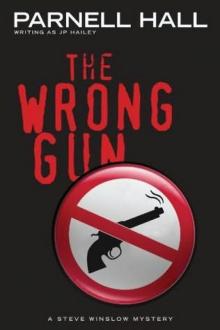 SW05 - The Wrong Gun
SW05 - The Wrong Gun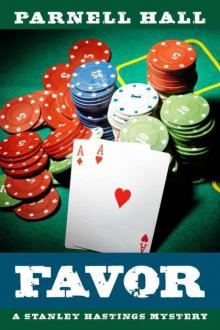 3 Favor
3 Favor Last Puzzle & Testament
Last Puzzle & Testament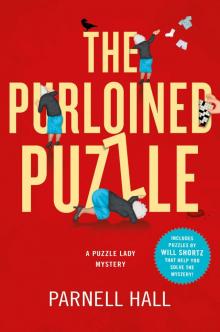 The Purloined Puzzle
The Purloined Puzzle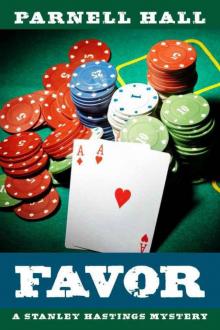 03-Favor
03-Favor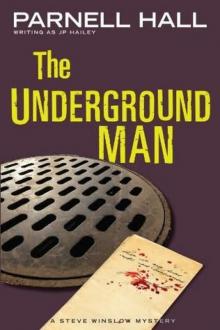 SW03 -The Underground Man
SW03 -The Underground Man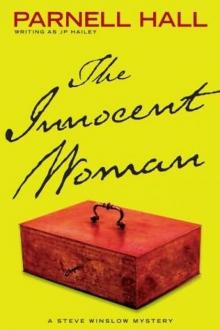 The Innocent Woman sw-6
The Innocent Woman sw-6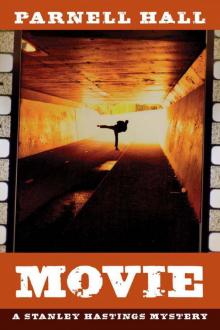 10 Movie
10 Movie 06-Juror
06-Juror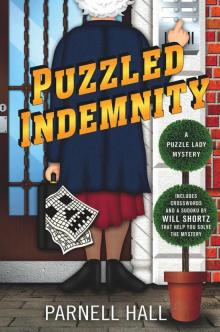 Puzzled Indemnity
Puzzled Indemnity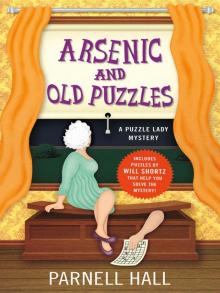 Arsenic and Old Puzzles
Arsenic and Old Puzzles Dead Man's Puzzle
Dead Man's Puzzle Safari
Safari $10,000 in Small, Unmarked Puzzles
$10,000 in Small, Unmarked Puzzles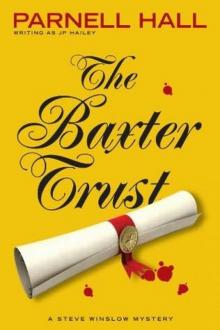 The Baxter Trust sw-1
The Baxter Trust sw-1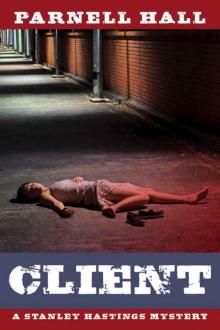 5 Client
5 Client Cozy (Stanley Hastings Mystery, #14)
Cozy (Stanley Hastings Mystery, #14)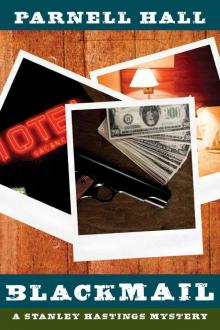 Blackmail
Blackmail A Puzzle in a Pear Tree
A Puzzle in a Pear Tree A Clue for the Puzzle Lady
A Clue for the Puzzle Lady Clicker Training (Stanley Hastings Mystery, A Short Story)
Clicker Training (Stanley Hastings Mystery, A Short Story)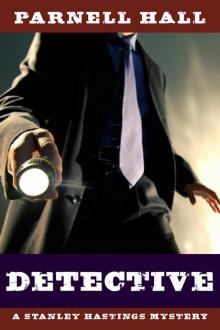 Detective (Stanley Hastings Mystery Book 1)
Detective (Stanley Hastings Mystery Book 1)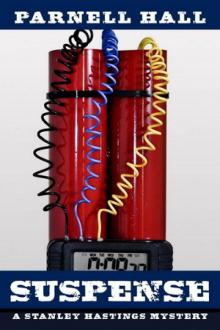 13 Suspense
13 Suspense